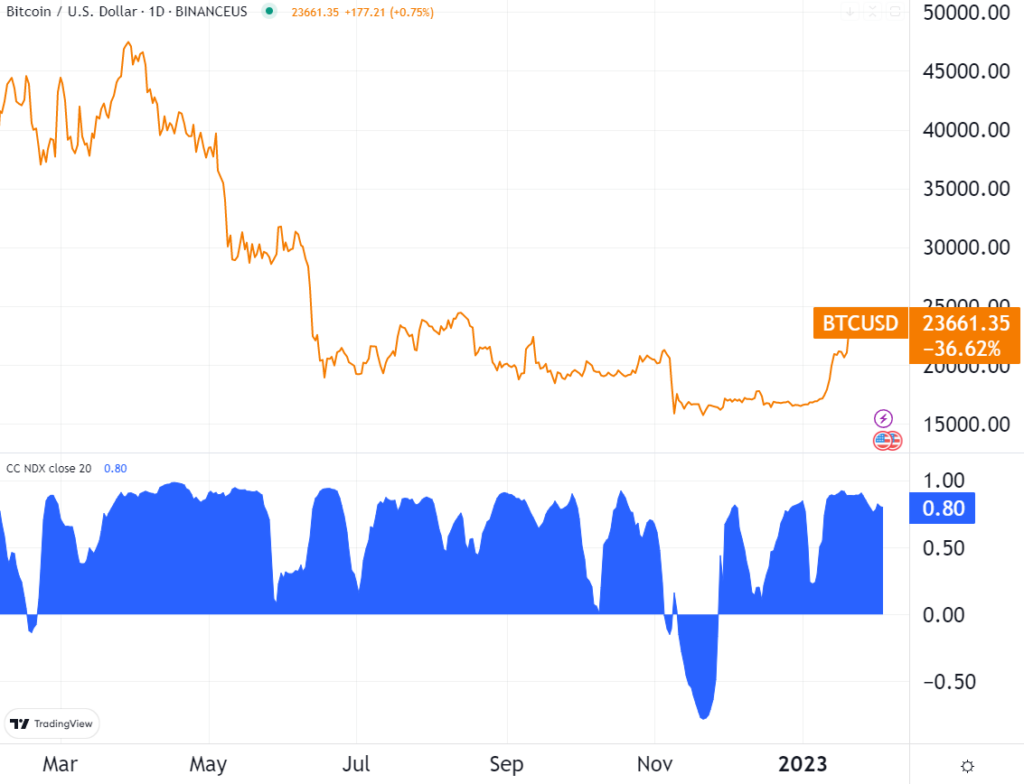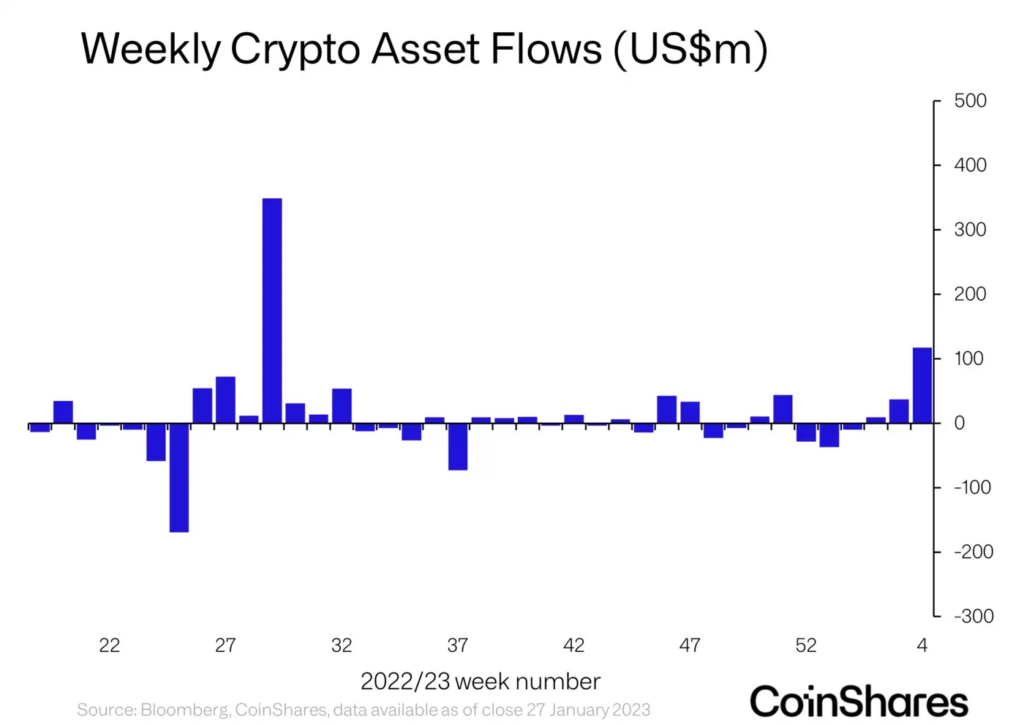Was Bitcoin’s January Rally Driven by “Smart Money”?
The Tokenist | Feb 05, 2023 03:20AM ET
Institutional investors seem to be pushing Bitcoin to greater levels, let's look into it.
Over the month of January, Bitcoin returned to its highest level since August, gaining 41% to $23.5k. Is this a sign that institutional crypto investing is making a comeback? Data indicates that a lot of the bitcoin gains during January might have come from institutional buy pressure.
Who is Really Behind the Crypto Rally?
Historically, the “January Effect” is a well-observed phenomenon wherein small-cap stocks tend to outperform large-cap stocks. This is typically attributed to reinvestment of end-year bonuses, tax-loss selling (different from tax-loss harvesting ), and overall optimism at the beginning of a new year.
Not only is there a January Effect, but also the “first five days” rule. According to Stock Trader’s Almanac, having tracked the stock market since 1950, the first five days of January indicate if the market will stay up by the year’s end. In this light, we can view crypto investing as well.
After all, the reason why the crypto market often correlates with the stock market is due to institutional investors bringing greater liquidity. This creates a ripple effect that affects the entire market.

At 0.80 correlation coefficient, tech-weighed Nasdaq 100 index continues to strongly correlate with Bitcoin price. Image credit: Trading View
On Monday, CoinShares reported the largest digital asset inflows since July 2022, two months after the Terra (LUNA) collapse. Equally bullish, the total assets under management (AuM) increased by 43% from November’s lows to $28 billion.

Almost the entirety of last week’s inflows were allocated to Bitcoin, at $116 million. Image credit: CoinShares.
With greater certainty that Bitcoin is a definitive commodity , while other digital assets could be classified as securities in the future, the investment focus on Bitcoin is not surprising. Moreover, Matrixport research from January 27th shows that most Bitcoin gains came within US trading hours.
Because Bitcoin can be traded 24/7, but the buying pressure accounts for 85% of Bitcoin gains in US trading hours, this indicates US-based institutional investors. Consequently, their liquidity injection moved the market sentiment to “greed” after being under the 60 range since March 2022.
Lastly, institutional crypto investing is bolstered by the macro-front. The US Treasury is maintaining a low level of federal debt by injecting liquidity into the economy. Between January – March 2023, the Treasury is set to borrow $932 billion in marketable debt. This backdoor liquidity somewhat negates the Fed’s quantitative tightening (QT).
However, as the US Treasury drains its cash balance, the debt ceiling will have to be raised. Once the Treasury’s balance starts filling up again, so will the liquidity be pulled back. At that time, the Fed’s QT will show greater force if Jerome Powell continues with the rate hikes in the second half of the year.
In the end, after a string of crypto bankruptcies marked 2022, Bitcoin’s price is wedged between macro factors and institutional investors’ response to them.
Disclaimer: This article was originally published on The Tokenist. Check out The Tokenist’s free newsletter, Five Minute Finance , for weekly analysis of the biggest trends in finance and technology.
Trading in financial instruments and/or cryptocurrencies involves high risks including the risk of losing some, or all, of your investment amount, and may not be suitable for all investors. Prices of cryptocurrencies are extremely volatile and may be affected by external factors such as financial, regulatory or political events. Trading on margin increases the financial risks.
Before deciding to trade in financial instrument or cryptocurrencies you should be fully informed of the risks and costs associated with trading the financial markets, carefully consider your investment objectives, level of experience, and risk appetite, and seek professional advice where needed.
Fusion Media would like to remind you that the data contained in this website is not necessarily real-time nor accurate. The data and prices on the website are not necessarily provided by any market or exchange, but may be provided by market makers, and so prices may not be accurate and may differ from the actual price at any given market, meaning prices are indicative and not appropriate for trading purposes. Fusion Media and any provider of the data contained in this website will not accept liability for any loss or damage as a result of your trading, or your reliance on the information contained within this website.
It is prohibited to use, store, reproduce, display, modify, transmit or distribute the data contained in this website without the explicit prior written permission of Fusion Media and/or the data provider. All intellectual property rights are reserved by the providers and/or the exchange providing the data contained in this website.
Fusion Media may be compensated by the advertisers that appear on the website, based on your interaction with the advertisements or advertisers.